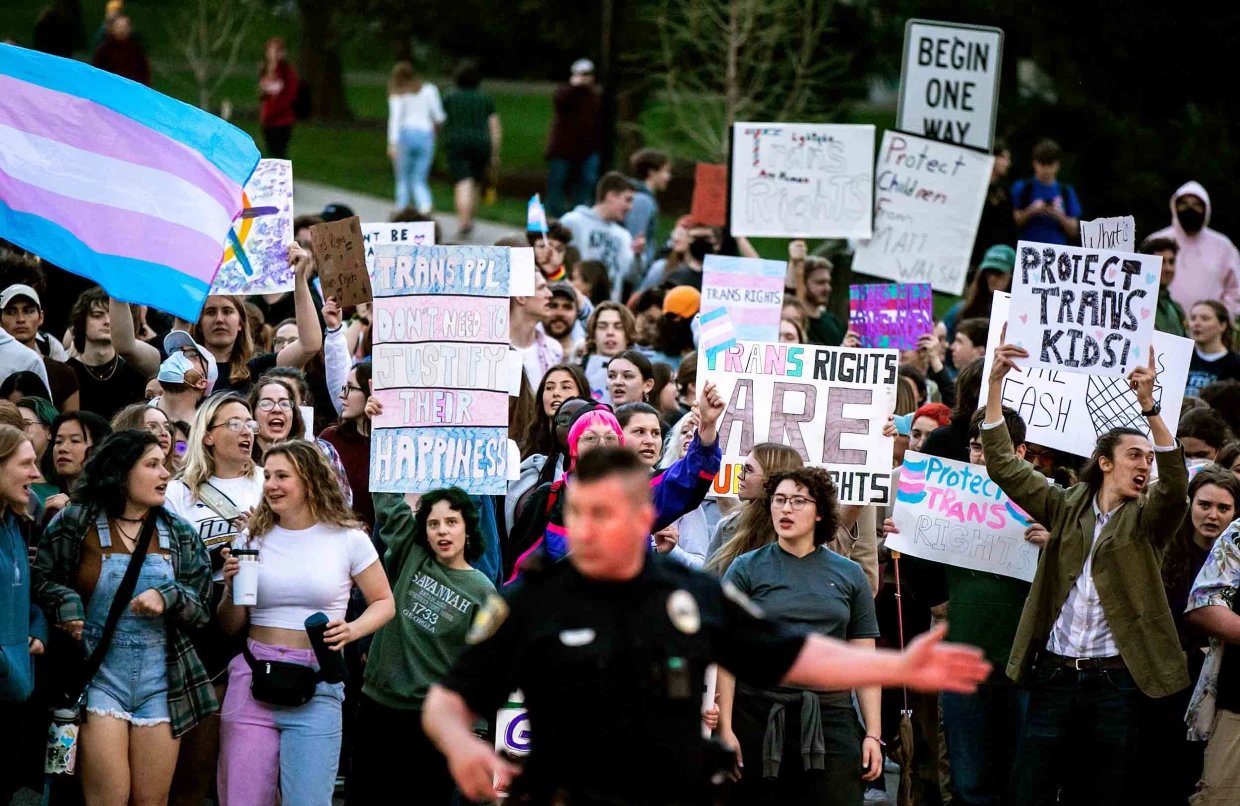
Ever wondered what's all the buzz about woke culture? You're not alone! Woke culture has taken the world by storm, sparking conversations and debates across dinner tables and digital platforms alike. But what exactly is it? Woke culture refers to a heightened awareness of social injustices and inequalities. It's about being awake to the realities that many prefer to sweep under the rug. From social media campaigns to street protests, this movement has reshaped how we talk about and engage with issues of race, gender, and beyond. So, why does it matter, and how has it become a pivotal part of our societal dialogue? Stick around as we unpack 12 fascinating facts about the woke culture phenomenon, shedding light on its origins, impact, and controversies. Ready to get woke on woke? Let's dive in!
Key Takeaways:
- Woke culture is about recognizing social and racial injustices and striving for inclusivity. It has evolved from the civil rights movement and continues to impact language, social media, and workplace policies.
- Woke culture influences discussions on social issues, language, and workplace policies. It continues to evolve and adapt to address new challenges, shaping societal norms and values.
Understanding Woke Culture
Woke culture refers to a social awareness of issues that concern social and racial justice. It's about recognizing inequality and striving for inclusivity in all aspects of society. This movement has gained momentum, especially on social media, where discussions around these topics are vibrant and ongoing.
Origins of Woke Culture
- Woke originally comes from African American Vernacular English (AAVE), meaning alert to racial prejudice and discrimination. It gained prominence in the 1960s with the civil rights movement but has evolved to encompass broader social injustices.
Woke Culture's Impact on Language
- Language plays a crucial role in woke culture. Terms like "privilege," "intersectionality," and "systemic racism" have become part of everyday conversations. These words help articulate complex social dynamics that were once less understood by the general public.
The Role of Social Media
-
Social media platforms have become battlegrounds for discussions on woke culture. They amplify voices that were historically marginalized, allowing for a more inclusive dialogue on social issues.
-
Memes, hashtags, and viral posts related to woke culture often trend, indicating its significant influence on digital conversations.
Criticism and Debate
-
Woke culture faces criticism from various quarters. Some argue it promotes censorship and limits free speech, while others believe it's essential for societal progress.
-
The debate around woke culture is often polarized, reflecting broader societal divisions on issues of race, gender, and equality.
Woke Culture in the Workplace
-
Companies increasingly adopt diversity and inclusion policies, reflecting woke culture's principles. These initiatives aim to create more equitable and inclusive work environments.
-
Employee training programs now often include modules on unconscious bias and cultural sensitivity, highlighting woke culture's impact on corporate practices.
Woke Culture and Education
-
Schools and universities are revising curricula to include more diverse perspectives. This shift aims to provide a more accurate representation of history and society, influenced by woke culture's emphasis on inclusivity.
-
Discussions around woke culture have led to debates on campus about free speech and the role of education in addressing social injustices.
The Future of Woke Culture
-
Woke culture continues to evolve. As society changes, so too will the issues it highlights and the ways in which it influences public discourse.
-
The ongoing dialogue around woke culture suggests it will remain a significant force in shaping societal norms and values. Its ability to adapt and address new challenges will likely determine its longevity and impact.
A Final Nod to Woke Culture's Impact
Woke culture has reshaped conversations and actions across societies, pushing for more awareness and inclusivity. From social media to the streets, its influence is undeniable, sparking debates and inspiring change. Critics and supporters alike can't ignore its role in today's dialogues on justice, equality, and human rights. As we've seen, understanding woke culture isn't just about catching up with a trend; it's about engaging with the evolving dynamics of societal values. Whether you're a skeptic or an advocate, the phenomenon offers a platform for critical thinking and active participation in shaping a more conscious world. Let's keep the conversation going, learning from each other, and striving for a society where respect and understanding are at the forefront.
Frequently Asked Questions
Was this page helpful?
Our commitment to delivering trustworthy and engaging content is at the heart of what we do. Each fact on our site is contributed by real users like you, bringing a wealth of diverse insights and information. To ensure the highest standards of accuracy and reliability, our dedicated editors meticulously review each submission. This process guarantees that the facts we share are not only fascinating but also credible. Trust in our commitment to quality and authenticity as you explore and learn with us.


